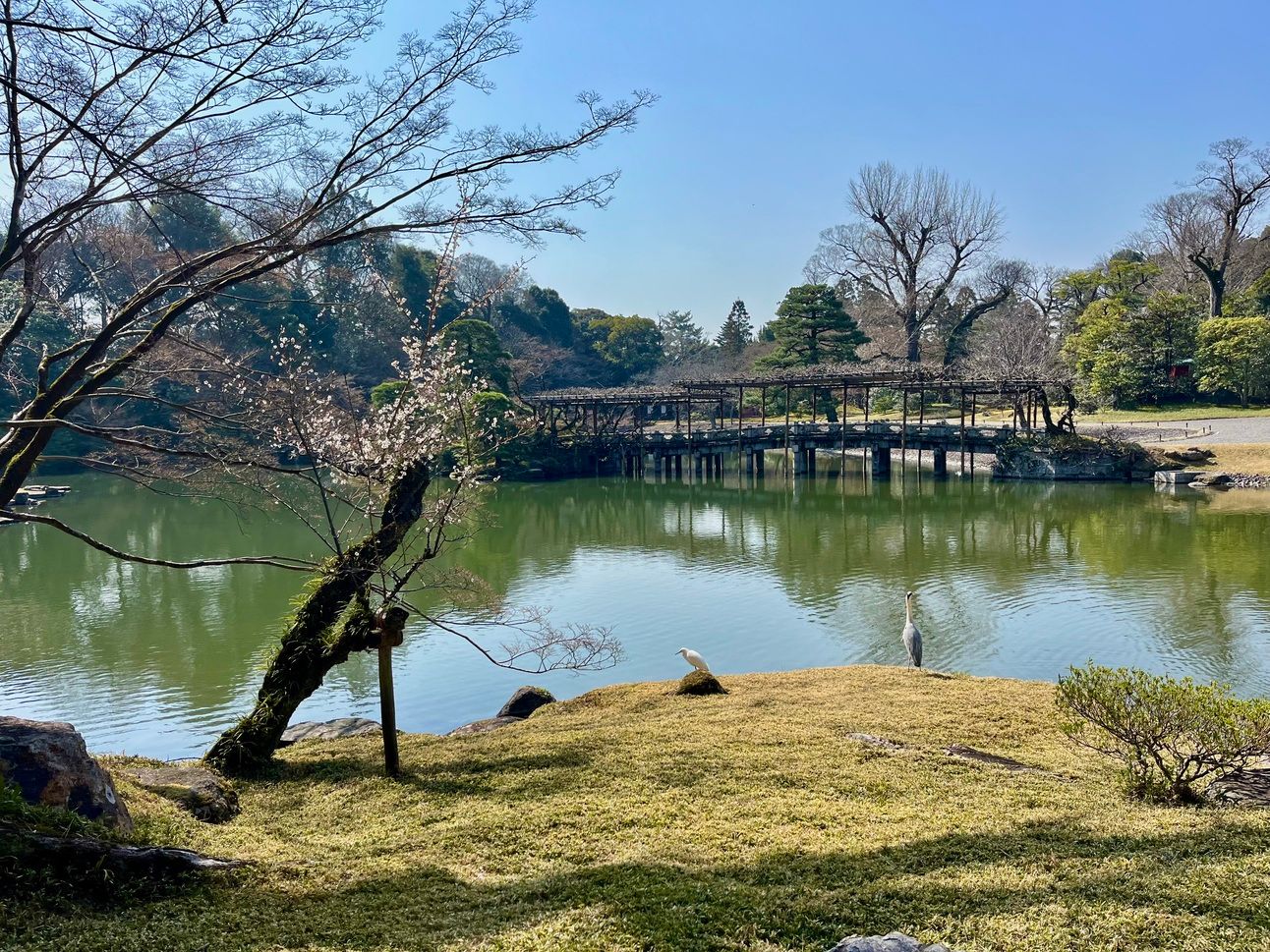- Ball Knowledge
- Posts
- Live From Kyoto - March 2025
Live From Kyoto - March 2025
It’s 8:51am on Tuesday, March 25th and I’m enjoying my morning cappuccino at a Starbucks in Kyoto. Set overlooking the peaceful Kamo River, I have no current desire to formulate an essay while on vacation.
I’m dedicated to myself and made a promise to post at least 1x a week however. So this week on Ball Knowledge I’m changing up the formula and am going to share my stories, thoughts, and observations from my brief time in Kyoto, Japan.

Mt. Fuji
I arrived at HND 3 days ago and quickly zipped over to the Kansai region via bullet train. It was a clear day and I was fortunate to see Mt. Fuji in the distance (sit on the right side of the car).
Once I was settled Kyoto, it was safe to confirm what I’ve long been told— Japanese people are exceptionally polite and respectful. Every interaction I had on the long journey from the airport to the atm to the subway to the train to the streets to the hotel and finally, to the restaurant, proved it.
Despite the language barrier, I felt incredibly welcomed and even had people go out of their way to be help me when I looked lost. To which I say, “arigato gozaimasu!”
Culture of Respect

Kyoto Sento Imperial Palace
Japan is a collectivist culture. There is a lot of honor in providing service, and everyone is respectful of others and their surroundings.
It’s refreshing to see this reality, and it almost feels impossible coming from America. Walk along any street and the sidewalk sparkles without a single piece of trash. Interactions between strangers are exceptionally polite and hospitable. Even the subway stations are nice and clean and some smell like waffles.
“Arigato gozaimasu!” chimes like a never-ending chorus no matter what establishment you’re in. Politeness is the dominant virtue here, almost to the point where it’s too much. I still always reciprocate but sometimes resort to smiling, nodding, or bowing to avoid repeating the same words for every interaction.
These collective values, and many more, have been ingrained in their culture over centuries. America simply could never. It is funny to think how the mere expectation of not littering is an unachievable feat that no lawful incentive can correct in the wild west.
American Hustle

Izakayas <3
Some American ways are deeply ingrained within me. One thing that’s surfaced is how hurried and fast-paced my stride is.
Rugged shoulders swaying, head leaned forward, aggressive pace is my MO. I weave through crowds and will dust you on the sidewalks.
And for what? Where am I in a hurry to get to? Is my drip that diff and swag that tough?
I’ve noticed that the Japanese overall have great posture. Many walk with their hips centered, chest out, shoulders back, head held high to complete an erect figure. This largely coincides with their leisurely, observant pace.
I can’t help but compare to my lopsided stride and accompanying poor posture. With my new awareness I’m undergoing constant adjustments to my bodily alignment, pace and attitude. I’ve enjoyed bringing this inner focus to my gait as I walk side by side with others who naturally glide.
I also have to catch myself from instinctually j-walking. It’s hard being patient for the walk light to change before crossing. This ain’t New York, that’s for sure.
Flâneuring

Fushimi Inari Shrine
My daily writing habit has fallen from grace on vacation but I’m still going to fire off one take: burn your travel itinerary.
Travel is overrated unless it is purposeful or meaningful. And there is simply no purpose in a pre-meditated schedule of site visits or tourist-ified experiences.
Nassim Taleb provided concreteness to a belief I have long held: travel is best done in near-complete spontaneity.
“Rational flâneur (or just flâneur): Someone who, unlike a tourist, makes a decision opportunistically at every step to revise his schedule (or his destination) so he can imbibe things based on new information obtained.”
Flâneuring is an act of wanderlust— exploring a city with little semblance of a plan and instead being guided by one’s senses. It is the antidote to a stressful, tight-packed calendar of activities.
I won’t go as far to say that you should have no idea what you’re getting into before showing up in a new city and just go wander around aimlessly. But I will say that you shouldn’t lock yourself into much.
By stripping the uncertainty from your travels, there is little room for discovery, awe, and serendipitous encounters. You instead shuffle around from one thing to the next, escorting yourself to activities and places you’ve researched online and believe to be a desirable, effective use of your time because that’s what you were told.
I propose that you should instead go looking for these places yourself. Before the trip do limited research to get a rough idea of the terrain and things are available to you. Then, forget it all.
Upon arrival is the best time to collect information. What ensues next will then be dictated by your own true preferences and physical senses, not the overly-commoditized offerings of SEO-optimized travel blogs and viral tiktoks.
Take Jack Raines’ advice for navigating new cities from his recent blog post:

I felt compelled to share these thoughts after an extremely tourist-ified experience with my parents in Kyoto. Obligatory visits to a set series of crowded shrines and temples who’s history I know nothing of isn’t my favorite type of travel and exposes my ignorance as an American in the East. To be fair, it’s near impossible to avoid this outcome in Kyoto of all places.
I’m off to Osaka next to meet up with my brother and am optimistic about my flâneuring prospects there. See you next week.
Reply